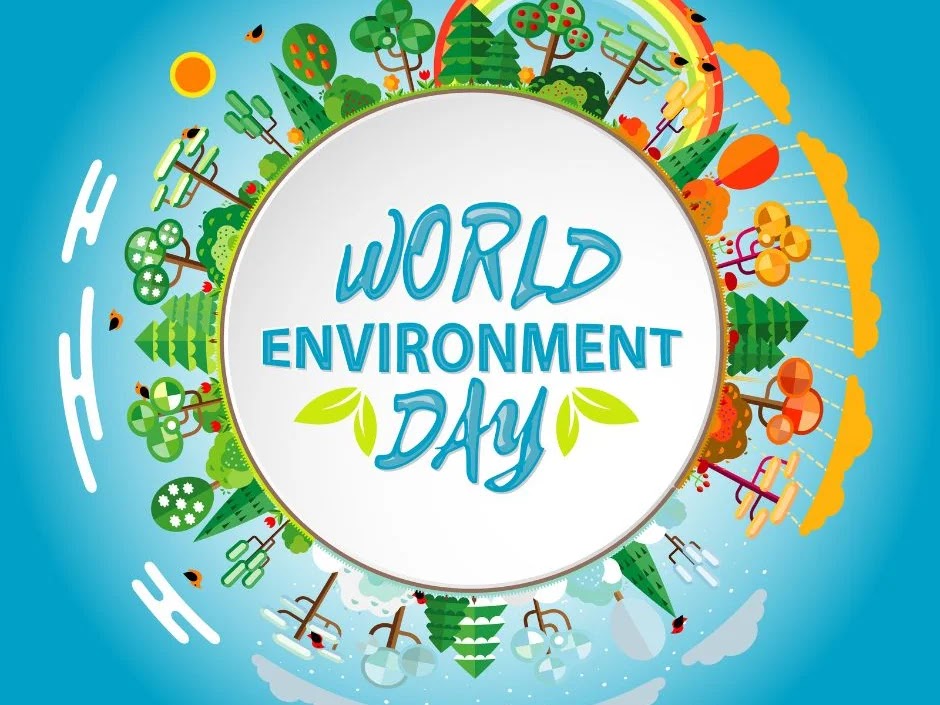Environment Desk
Sandeep Dhand Ludhiana
World Environment Day, observed annually on June 5th, is the United Nations’ principal vehicle for encouraging worldwide awareness and action for the environment. Each year, this day serves as a reminder of our collective responsibility to protect and preserve the planet. In 2024, the theme “Ecosystem Restoration” highlights the urgent need to revive damaged ecosystems to combat climate change, enhance biodiversity, and improve human well-being.
The Importance of Ecosystem Restoration
Ecosystems – from forests to oceans, wetlands to grasslands – provide essential services such as clean air, water, food, and materials. They regulate our climate, store carbon, and support biodiversity, which is crucial for human survival. However, human activities such as deforestation, pollution, overfishing, and industrialization have degraded these ecosystems. The United Nations Environment Programme (UNEP) reports that nearly half of the world’s ecosystems are now degraded, with significant impacts on biodiversity and human communities.
Ecosystem restoration involves reversing this degradation and reestablishing the ecological functions of these habitats. This can include reforestation, cleaning up polluted rivers, reintroducing native species, and sustainable farming practices. Effective restoration not only mitigates environmental damage but also contributes to the livelihoods of millions of people who depend on these ecosystems.

Global Efforts and Achievements
World Environment Day 2024 celebrates the strides made globally in ecosystem restoration. Countries and communities have embraced various projects, demonstrating that restoration is not just a possibility but a growing reality. Here are a few notable examples:
- The Great Green Wall Initiative in Africa : This ambitious project aims to combat desertification and land degradation in the Sahel region by planting trees and vegetation across an 8,000 km stretch. It has already begun to restore vital ecosystems, create jobs, and secure food sources for millions of people.
- China’s Reforestation Efforts : China has undertaken massive reforestation projects, notably the Grain for Green Program, which converts farmland back to forests. This program has restored millions of hectares of forest, improving air quality, and reducing soil erosion.
- India’s River Cleaning Projects : India has launched major initiatives to clean its rivers, such as the Namami Gange Programme, which focuses on rejuvenating the Ganges River. These projects not only improve water quality but also support biodiversity and human health.
- Europe’s Marine Protection : The European Union has implemented measures to protect and restore marine ecosystems, including the establishment of marine protected areas and sustainable fishing practices. These efforts help restore fish populations and marine biodiversity.

Individual Actions Matter
While large-scale projects are crucial, individual actions are equally important. Personal choices and community involvement can collectively make a significant impact. Here are some ways individuals can contribute to ecosystem restoration:
- Plant Trees and Support Reforestation : Participate in local tree planting events or support organizations that focus on reforestation. Trees play a critical role in carbon sequestration and providing habitat for wildlife.
- Reduce, Reuse, Recycle : Minimize waste by following the three Rs. Reduce consumption, reuse products whenever possible, and recycle materials to prevent them from ending up in landfills.
- Conserve Water : Practice water-saving habits such as fixing leaks, using water-efficient appliances, and reducing water waste in daily activities. Water conservation helps maintain healthy aquatic ecosystems.
- Support Sustainable Products : Choose products that are sustainably sourced and have minimal environmental impact. Look for certifications like Fair Trade, Rainforest Alliance, and organic labels.
- Engage in Local Environmental Groups : Join or support local environmental organizations that work on restoration projects in your community. Collective action can drive significant change.
Challenges and Future Prospects
Despite the progress, ecosystem restoration faces numerous challenges. These include funding constraints, lack of political will, and competing land use interests. Moreover, climate change poses an ongoing threat to restoration efforts, as extreme weather events and changing climate patterns can undermine progress.
However, the future holds promise as awareness and commitment to environmental sustainability grow. Governments, businesses, and civil society increasingly recognize the value of healthy ecosystems and are investing in innovative solutions. The rise of green technologies, sustainable agriculture practices, and nature-based solutions offers new opportunities for restoration.
Educational campaigns and media coverage have also amplified the importance of environmental stewardship, encouraging more people to get involved. The global youth movement, in particular, has become a powerful force for environmental advocacy, pushing for stronger policies and actions to protect the planet.
Conclusion
World Environment Day 2024 is a call to action for everyone – from policymakers to individuals – to prioritize ecosystem restoration. The theme “Ecosystem Restoration” emphasizes that while we have caused significant harm to our planet, we also have the power to heal it. By working together and committing to sustainable practices, we can restore our ecosystems, combat climate change, and ensure a healthier, more resilient world for future generations.
As we celebrate World Environment Day, let us reflect on our relationship with nature and take concrete steps to restore the earth. Every action counts, and together, we can create a greener, more sustainable future.
